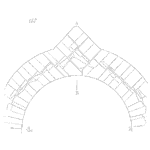
A good plot reveals the data’s story.
Repairable system data is what is called by statisticians a renewal process.
The repair activity may restore the system to as good as new. Sometimes, the repair pretty much leaves the system in a state similar to just before the repair.
What happens most often, though, is the chance of system failure changes after each repair activity.
A simple plot can help us see what is happening. [Read more…]













 Ask a question or send along a comment.
Please login to view and use the contact form.
Ask a question or send along a comment.
Please login to view and use the contact form.